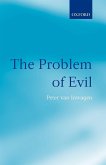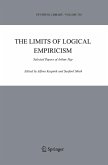We normally take it for granted that other people will live on after we ourselves have died. Even if we do not believe in a personal afterlife in which we survive our own deaths, we assume that there will be a "collective afterlife" in which humanity survives long after we are gone. Samuel Scheffler maintains that this assumption plays a surprising - indeed astonishing - role in our lives. In certain important respects, the future existence of people who are as yet unborn matters more to us than our own continued existence and the continued existence of those we love. Without the expectation that humanity has a future, many of the things that now matter to us would cease to do so. By contrast, the prospect of our own deaths does little to undermine our confidence in the value of our activities. Despite the terror we may feel when contemplating our deaths, then, the prospect of humanity's imminent extinction would pose a far greater threat to our ability to lead value-laden lives: lives structured by wholehearted engagement in valued activities and pursuits. This conclusion complicates widespread assumptions about human egoism and individualism. And it has striking implications for the way we think about climate change, nuclear proliferation, and other urgent threats to humanity's survival. Scheffler adds that, although we are not unreasonable to fear death, personal immortality, like the imminent extinction of humanity, would also undermine our confidence in the values we hold dear. His arresting conclusion is that, in order for us to lead value-laden lives, what is necessary is that we ourselves should die and that others should live. Scheffler's position is discussed with insight and imagination by four distinguished commentators - Harry Frankfurt, Niko Kolodny, Seana Shiffrin, and Susan Wolf - and Scheffler adds a final reply. "This is some of the most interesting and best-written philosophy I have read in a long time. Scheffler's book is utterly original in its fundamental conception, brilliant in its analysis and argument, and concise and at times beautiful in its formulation." Stephen Darwall, Yale University "[Scheffler's] discussion of the issues with which he has concerned himself is fresh and original. Moreover, so far as I am aware, those issues are themselves pretty much original with him. He seems really to have raised, within a rigorously philosophical context, some new questions. At least, so far as I know, no one before has attempted to deal with those questions so systematically. So it appears that he has effectively opened up a new and promising field of philosophical inquiry. Not bad going, in a discipline to which many of the very best minds have already devoted themselves for close to three thousand years." -Harry Frankfurt, Princeton University, from 'How the Afterlife Matters' (in this volume)" "A truly wonderful and very important book." - Derek Parfit, Emeritus Fellow, All Souls College, University of Oxford
Wie würden Sie reagieren, wenn Sie wüssten, dass 30 Tage nach Ihrem Tod die Erde und damit alles Leben auf ihr unwiederbringlich zerstört würden? Würde dieses Wissen die Art und Weise, wie Sie Ihr Leben führen, beeinflussen? Das ist das Gedankenexperiment, zu dem uns der amerikanische Philosoph Samuel Scheffler in seinem faszinierenden Buch einlädt. Er zeigt, dass ein solches Wissen weitreichende Folgen für unser Leben hätte - nichts wäre mehr wie zuvor! In ebenso luziden wie psychologisch verblüffenden Analysen, die immer wieder auf geniale Weise Beispiele aus der Populärkultur heranziehen, zeigt Scheffler, dass ein solches Wissen um den Untergang der Menschheit den Wert zahlreicher unserer Tätigkeiten in Frage stellen würde: Die langfristige medizinische Forschung nach einer Krebstherapie verlöre ihren Sinn, aber auch der Kampf gegen den Klimawandel oder der Einsatz für internationale Gerechtigkeit. Und würden wir noch Kunstwerke schaffen, Traditionen und Bräuche pflegen, uns verlieben, Kinder kriegen? Wohl kaum. Vielmehr steht zu befürchten, dass gesellschaftliche Regeln und Konventionen nicht mehr beachtet würden und anarchische Zustände drohten, wie Scheffler anhand des Romans Children of Men von P. D. James und seiner Verfilmung vorführt. Könnte es daher sein, dass uns das Überleben der Menschheit wichtiger ist als unser eigenes? Und was folgt daraus für unser Denken und Handeln in der Welt von heute? Ein kleines philosophisches Meisterwerk, das unser eigenes Leben in einem ganz anderen Licht erscheinen lässt.
Wie würden Sie reagieren, wenn Sie wüssten, dass 30 Tage nach Ihrem Tod die Erde und damit alles Leben auf ihr unwiederbringlich zerstört würden? Würde dieses Wissen die Art und Weise, wie Sie Ihr Leben führen, beeinflussen? Das ist das Gedankenexperiment, zu dem uns der amerikanische Philosoph Samuel Scheffler in seinem faszinierenden Buch einlädt. Er zeigt, dass ein solches Wissen weitreichende Folgen für unser Leben hätte - nichts wäre mehr wie zuvor! In ebenso luziden wie psychologisch verblüffenden Analysen, die immer wieder auf geniale Weise Beispiele aus der Populärkultur heranziehen, zeigt Scheffler, dass ein solches Wissen um den Untergang der Menschheit den Wert zahlreicher unserer Tätigkeiten in Frage stellen würde: Die langfristige medizinische Forschung nach einer Krebstherapie verlöre ihren Sinn, aber auch der Kampf gegen den Klimawandel oder der Einsatz für internationale Gerechtigkeit. Und würden wir noch Kunstwerke schaffen, Traditionen und Bräuche pflegen, uns verlieben, Kinder kriegen? Wohl kaum. Vielmehr steht zu befürchten, dass gesellschaftliche Regeln und Konventionen nicht mehr beachtet würden und anarchische Zustände drohten, wie Scheffler anhand des Romans Children of Men von P. D. James und seiner Verfilmung vorführt. Könnte es daher sein, dass uns das Überleben der Menschheit wichtiger ist als unser eigenes? Und was folgt daraus für unser Denken und Handeln in der Welt von heute? Ein kleines philosophisches Meisterwerk, das unser eigenes Leben in einem ganz anderen Licht erscheinen lässt.








